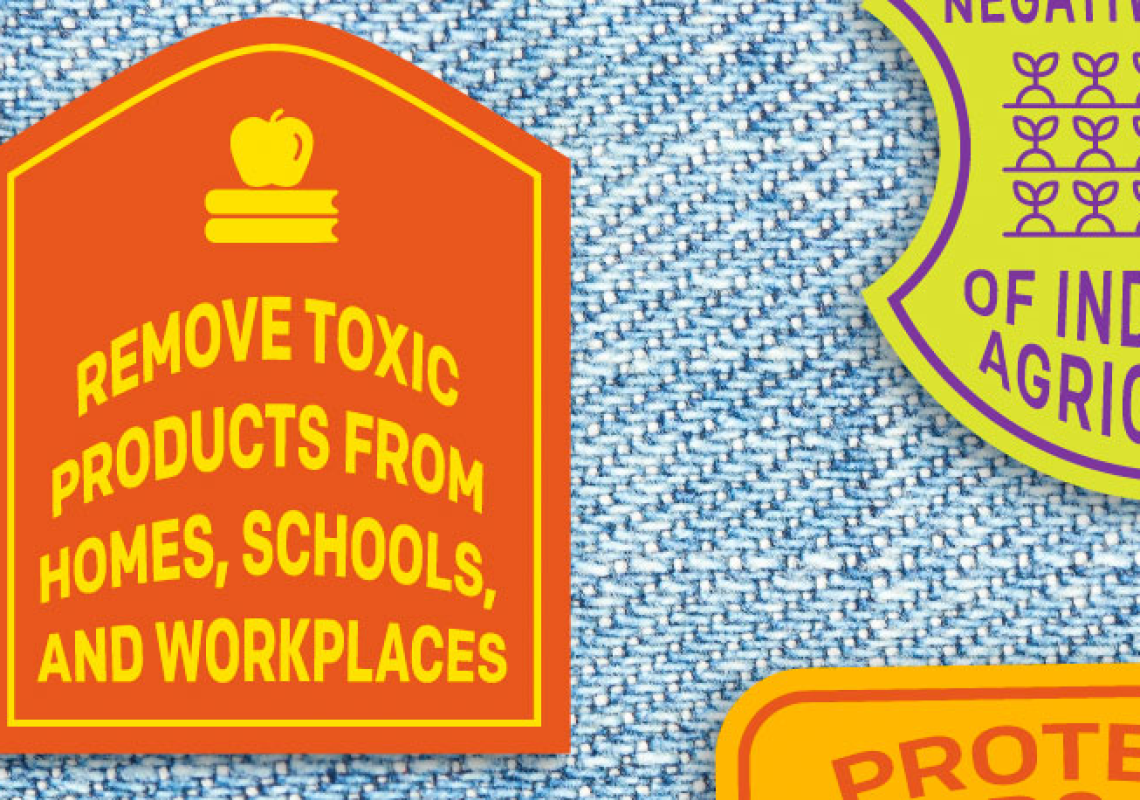We take on many of the biggest environmental and health challenges of our time and stick with them. The law makes change.
Because the earth needs a good lawyer.
For five decades, Earthjustice has fought thousands of legal cases, representing our clients free of charge.
See some of our proudest accomplishments pushing for bans or significant restrictions on chemicals that are harming communities and the planet.
Farmworkers represent the backbone of our agricultural economy and their work is some of the most physically demanding labor in any economic sector. They are also among the least protected from hazards on the job and have one of the highest rates of chemical exposures among all U.S. workers. Every year, as many as 300,000 agricultural workers suffer pesticide poisoning.
Earthjustice joined with farmworker, labor, and environmental groups to compel the U.S. Environmental Protection Agency to update the Agricultural Worker Protection Standard and protect the people who grow and harvest the nation’s food from harmful pesticides.
We fight for a healthy, safe, and fair food system that safeguards the health and economic needs of farmworkers, farmers, rural communities, and consumers. Shifting away from reliance on hazardous pesticides is a key step toward this goal. For as long as harmful pesticides are in use, we will work for stronger environmental health regulations for all people.
Under a court-ordered deadline, the U.S. Environmental Protection Agency finally banned all food uses of the toxic pesticide chlorpyrifos.
Widely used in U.S. agriculture for half-a-century, chlorpyrifos was originally developed by the Nazis for chemical warfare.
Chlorpyrifos can permanently damage the developing brains of children. EPA itself confirmed in 2016 that there are no safe uses for chlorpyrifos. Yet it refused to ban the pesticide until it faced a court order.
In a series of relentless lawsuits, Earthjustice, alongside our partner and clients, repeatedly pushed the EPA to ban chlorpyrifos, as part of our work to target the most dangerous chemicals for phase-outs or outright bans.
Earthjustice has long worked to meaningfully reform the Toxic Substances Control Act, the main law that governs the safety of chemical products.
In 2019, Earthjustice won a key lawsuit that will force the U.S. Environmental Protection Agency to consider the full range of ways that people may be exposed to harmful chemicals. The ruling will be used to push for a better risk evaluation process under the Toxic Substances Control Act for a number of chemicals currently under review, many of which are petrochemicals.
Of the 80,000 chemicals on the U.S. market today, only about 200 have been tested for safety.
Earthjustice is working to ensure that our nation’s laws protect people and the environment, not chemical company profits.
Mountaintop removal mining is the most destructive form of mining in which the tops of mountains are literally blown off to reach the coal seams beneath. Over a dozen peer-reviewed scientific studies have shown severe and escalating cases of birth defects, lung cancer, and increased rates of heart disease in communities where mountaintop removal is conducted as compared to other areas in Appalachia.
Because of the unacceptable environmental harm in an area where communities are already overburdened by mining and its pollution, the U.S. Environmental Protection Agency in 2011 issued a historic veto of the massive 2,000-acre Spruce No.1 mine in West Virginia.
Industry challenged the veto. Earthjustice, with and on behalf of Appalachian groups who had been fighting the mine for two decades, filed an amicus curiae brief to defend the EPA’s action. Multiple court decisions upheld the veto.
Stopping Spruce No. 1 protected waterways and mountains and promoted a sustainable way of life that doesn’t require the destruction of ecosystems.
Earthjustice is working to stop contamination of PFAS — a class of 5,000 toxic chemicals known as “forever chemicals” that don’t break down and can remain in drinking water and our bodies for decades.
More than 200 million people across the country are likely exposed to food and drinking water contaminated with PFAS, which have been linked to serious medical problems, particularly in children.
In 2018, Earthjustice successfully argued against a federal immunity defense that tried to bar residents living near military bases in southeastern Pennsylvania who were exposed to high levels of PFAS from seeking justice through the U.S. legal system.
A U.S. district court later ruled that the lawsuit cannot move forward until federal and state regulators take action on PFAS chemicals.
Earthjustice is now pushing for stronger federal legislation to address PFAS contamination and pressing for stronger implementation of state PFAS laws.
Earthjustice is representing residents of St. James Parish — part of an 85-mile stretch along the Mississippi River dubbed “Cancer Alley” — who are fighting a massive proposed petrochemical complex that would double toxic air emissions and more than triple the levels of cancer-causing chemicals in this mostly Black community.
Chemical plants like these worsen the climate crisis, increase throwaway plastics pollution, and perpetuate environmental racism.
Earthjustice’s work on petrochemicals stretches back to 1976, when a lawsuit we filed helped discourage Dow Chemical Company from building an enormous petrochemical plant in California’s Sacramento-San Joaquin River Delta.
Today, the fossil fuel industry is launching a massive shift to petrochemicals, with a significant number of petrochemical facilities planned to be built or expanded — primarily in Gulf Coast and Appalachian communities already burdened by high levels of pollution.
We’re going to court to stop the industry from breaking ground on these toxic facilities.
Earthjustice’s 50th Anniversary Virtual Celebration
Stay informed on how we hold accountable those who break our environmental laws.






